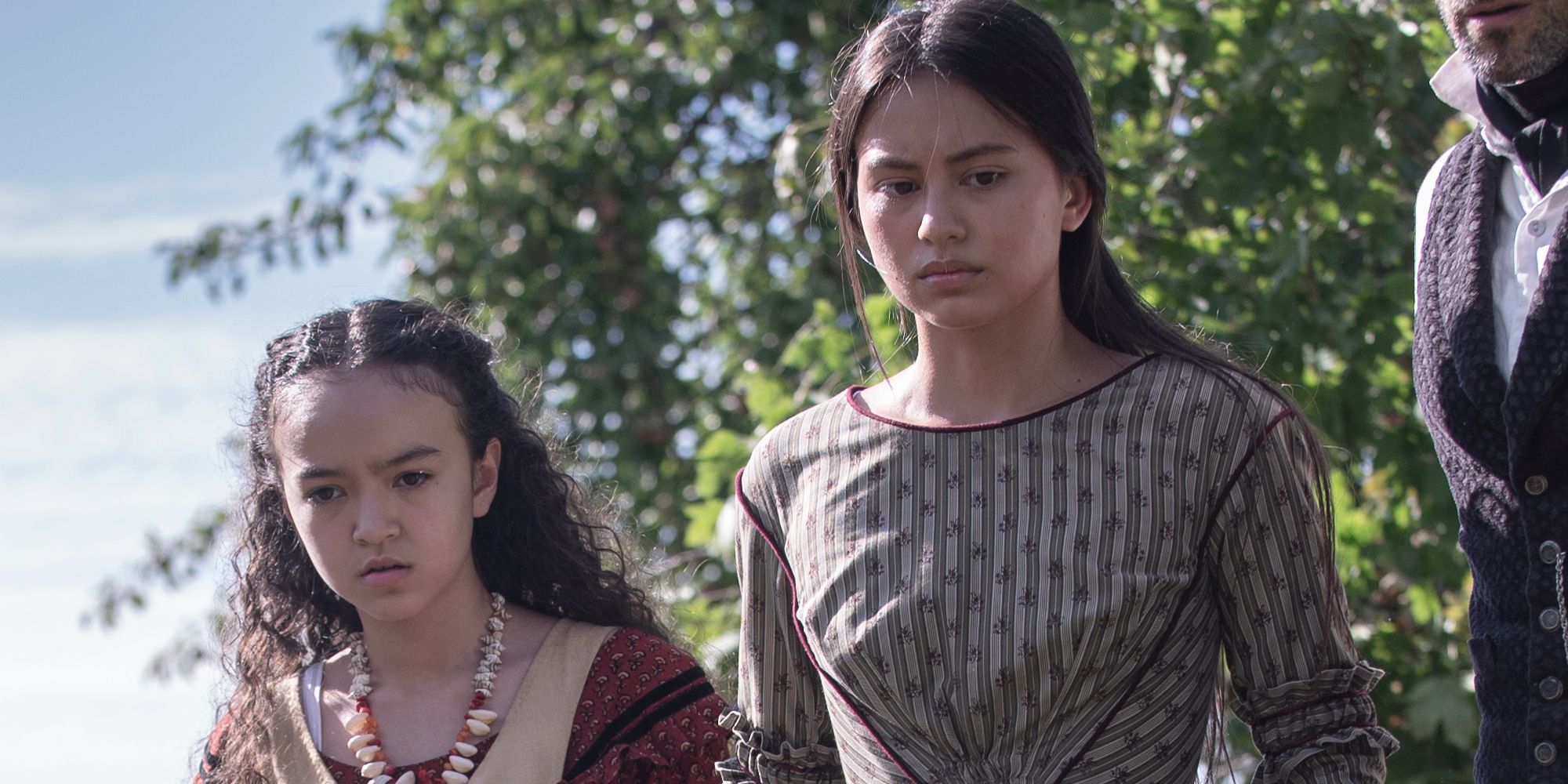
WARNING: The following contains spoilers for Chapelwaite Season 1, Episode 1, "Blood Calls Blood," airing now on EPIX.
Considering Chapelwaite has been adapted from a short story into a ten-episode horror miniseries, the series obviously will differ greatly from the original “Jerusalem’s Lot” by Stephen King. In the premiere, creators Peter and Jason Filardi take their time setting up the series' atmosphere. They also make many of the major changes from the short story clear. Overall, the major changes in Chapelwaite work to strengthen the focus on the Boone family conflict, using more family members, such as the Boone children, to provide more perspectives of the family's complicated history. The changes also make the Boone family far more intertwined with the fate of Preacher's Corners, for better and for worse.
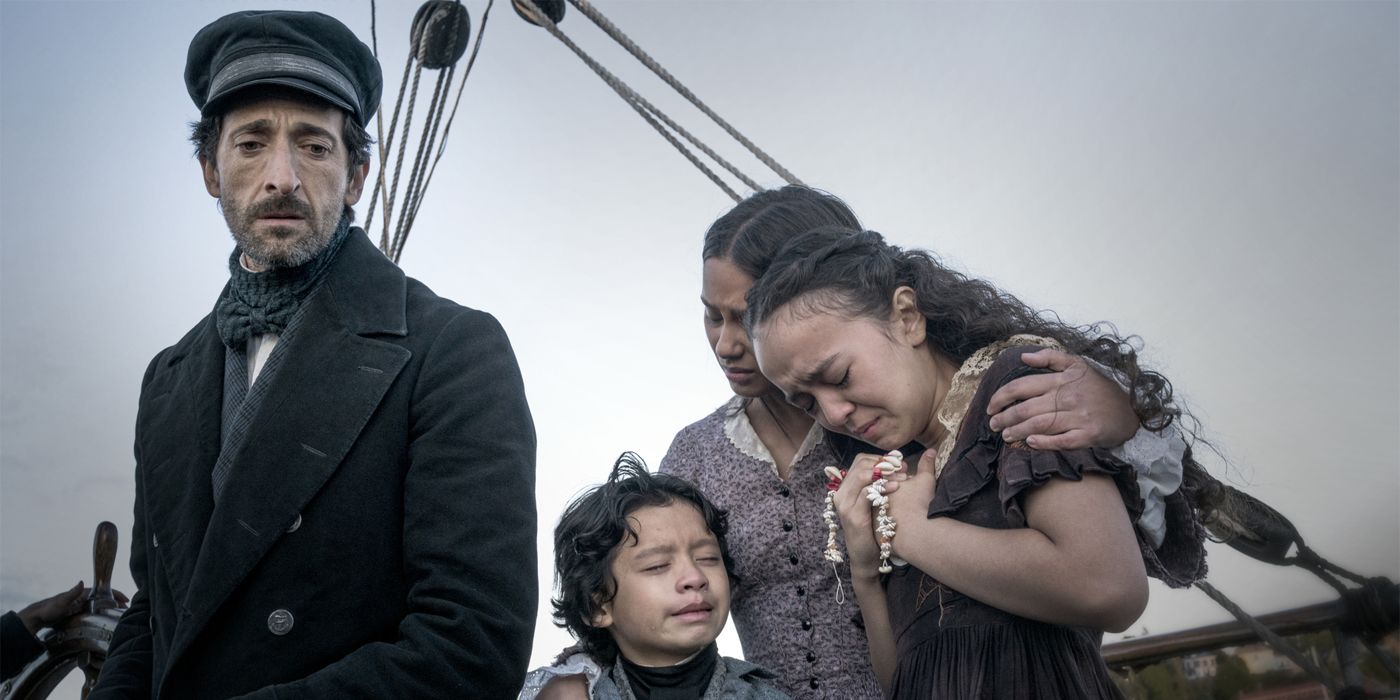
The most significant change to Chapelwaite from "Jerusalem's Lot" is the addition of a family. In the original short story, Charles had a deceased wife, Sarah, but they had no children together. Honor, Loa and Tane give the series a stronger heart and allow more focus on the family. While "Jerusalem's Lot" only featured Charles' reckoning with his family's past, Honor, Loa and Tane will also have to navigate their family's troubled history in Chapelwaite. The three siblings are each grappling with their mother's death in their own ways, which both help them support each other and may place them at odds in the future.
With the addition of Honor, Loa and Tane, the Filardi brothers also bring discussions of racism to the forefront of the story. In "Jerusalem's Lot," Charles Boone and all of the friends that he corresponds with are abolitionists, but this fact forms a minor part of the tale. Due to their multiracial Asian heritage, the Boone children already have to face racism in Preacher's Corners in addition to hostility due to their extended family members' actions. Thus, rather than having the discussions of racism just be allusions made by men unaffected by that racism themselves, the Filardi brothers make Honor, Loa and Tane the actual people affected by the racism. For the Boone children, the people of Preacher's Corners may be even more dangerous than the supernatural horror awaiting them at home in Chapelwaite.
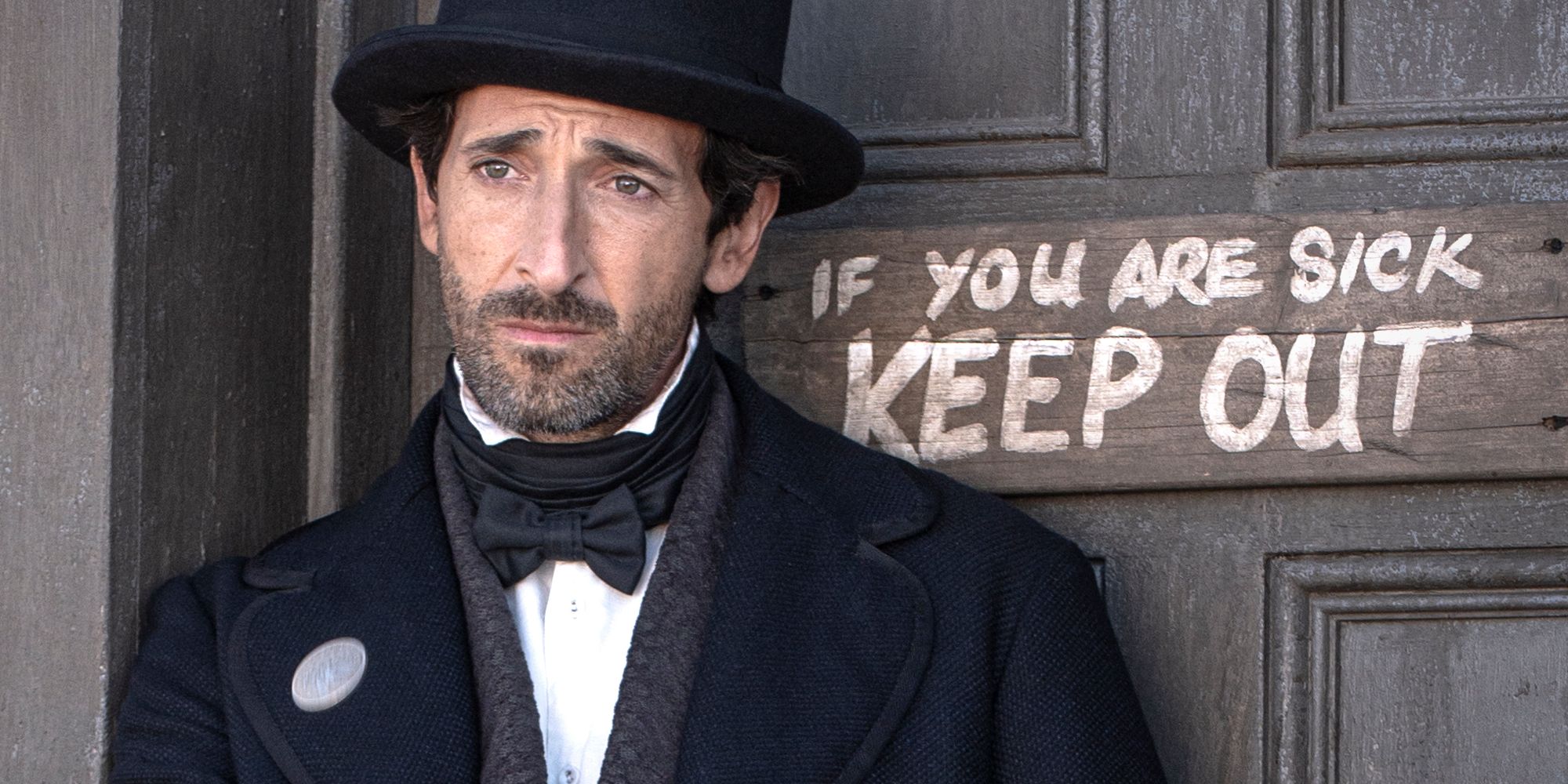
In "Jerusalem's Lot," a conflict between Robert Boone, Charles Boone's grandfather and Phillip Boone, Charles' great uncle, is at the heart of the family's split. In Chapelwaite, the conflict is between Robert Boone, Charles' father and Phillip Boone, Charles' uncle. The removal of a generation in the family tree makes the conflict more immediate. Rather than the older history of the rift that Charles must discover through his grandfather's journal, Charles is aware of the issues through his father. The Filardi brothers also clearly make Robert affected by some trauma that leads to Robert attempting to kill Charles as a child.
The weight of Charles' trauma from his father's actions weighs heavily on Charles throughout the premiere. In "Jerusalem's Lot," the supernatural horror is mainly new to Charles, and he moves to Chapelwaite unaware of any of his family's connections with the supernatural. In Chapelwaite, Robert's pronouncements of "blood calls blood," and warnings about "the worm" hint at more otherworldly explanations for Robert's brutal descent. However, Robert's actions are currently blamed on mental illness. Still, Charles' own hallucinations of worms show that he may become affected by his family's history sooner rather than later.
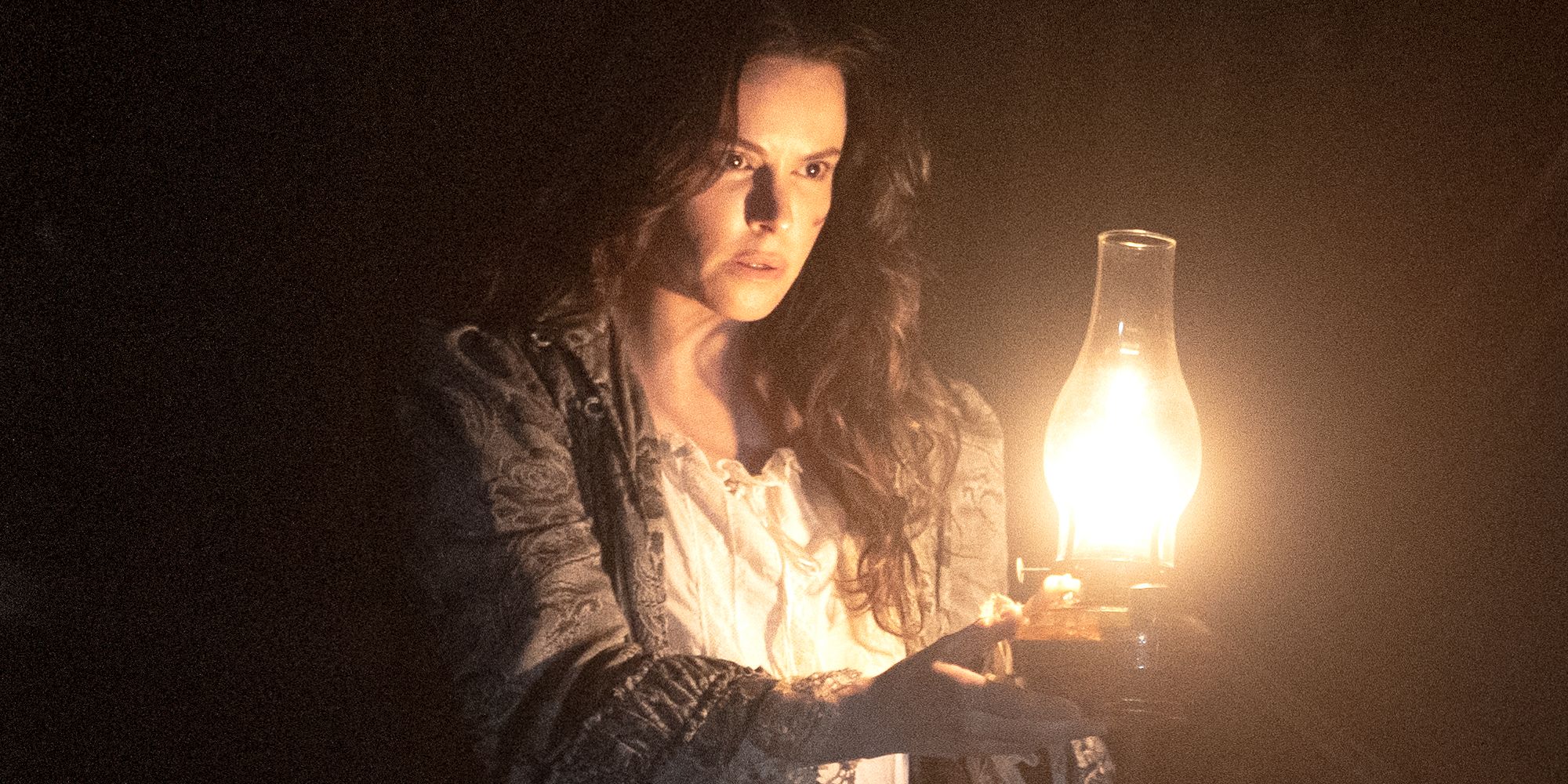
In "Jerusalem's Lot," Charles Boone makes an offhand comment in one of his letters about wanting to write a novel, but nothing ever comes of this ambition once the supernatural horror becomes more clear. Chapelwaite transfers Charles Boone's literary ambitions to Rebecca Morgan, the family's new governess. Shifting this ambition to Rebecca allows Charles' character arc to be more rooted in his family and their business dealings. Rebecca's literary ambitions also allow her to be a more complicated, flawed character.
Rebecca is also one of two characters put in the narrative to take the place of Calvin McCann, Charles' servant and long-time friend. While Calvin does most of the initial information gathering, albeit accidentally, when acquiring provisions for the house in Preacher's Corners, Rebecca's knowledge comes from living in the town for most of her life. In "Jerusalem's Lot," Charles also has to mail old acquaintances to learn more about the folklore of Jerusalem's Lot. While Jerusalem's Lot has only been mentioned in passing as the Boone family's old mining town, Rebecca may be able to provide more information when the subject comes up. Thus, through Rebecca, the Boones and the audience can gain more insight into the town and its past.
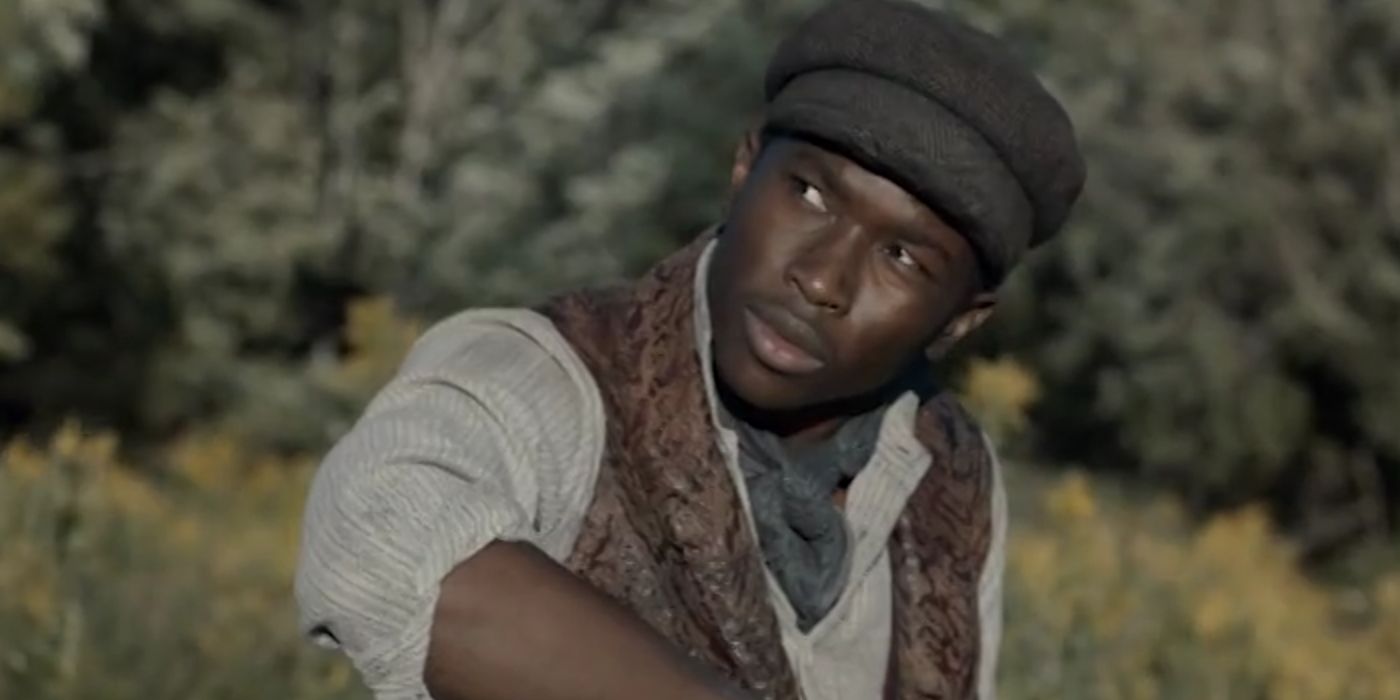
Like Rebecca Morgan, Able Stewart also seems poised to take over parts of Calvin McCann's role in the narrative. Like Calvin, Able works for Charles, but in Able's case, he currently works mainly for the Boone family sawmill. In the premiere, Able reveals that he has been keeping the books for the Boone family, and his accurate records allow Charles to realize that Daniel Thompson and his men have been trying to do less work for more. Able also seems aware of the Boone family's dealings with Jerusalem's Lot, though that information has not become necessary to reveal quite yet.
Like Honor, Loa and Tane, Able also faces racism as the only Black character in Preacher's Corners. Thus far, he has already faced racism at work. Under Thompson, Able is relegated to "tool boy," even though he is just as capable as the other men, if not smarter and better educated through teaching himself. Charles earns Able's trust by giving Able a fair wage for his work, including a raise for keeping the books so well. The racism that Able faces as a Black teen seemingly unconnected from any of the major families within Preacher's Corners also will allow the series to potentially show how different forms of racism manifest, especially in small communities during the 19th century.
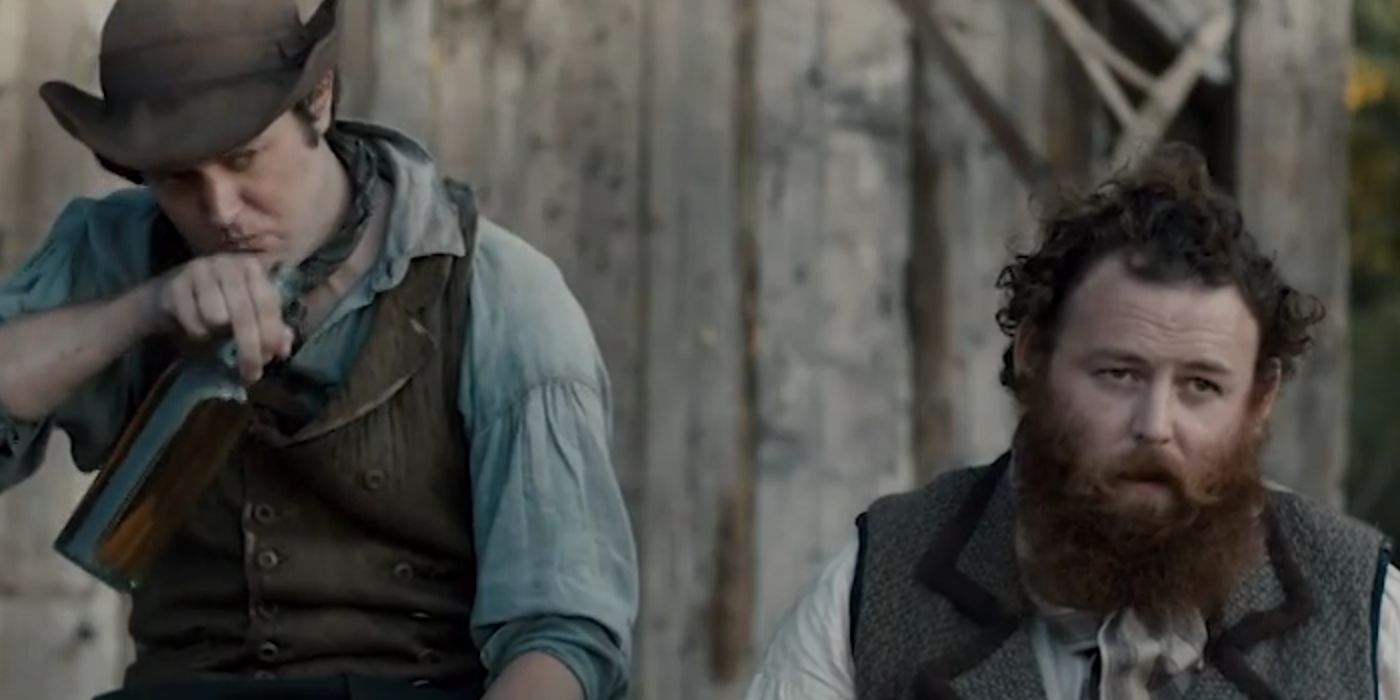
In "Jerusalem's Lot," Thompson is a pulp-logger, and Calvin McCann mainly contacts Thompson on Charles' behalf to get firewood for Chapelwaite. Thompson makes sure to schedule the deliveries during the daytime because he does not want his sons going near the house at night. Their interactions provide a hint of the supernatural horror within Chapelwaite's walls.
In Chapelwaite, the Boone family actually owns the sawmill, and Daniel Thompson and his men work for Charles. This change heightens the hostility between Charles and Thompson and further highlights the enmity between Preacher's Corners and the Boone family overall. The Boone family's ownership of the sawmill gives Charles more power in the town, but that power also breeds resentment. Changing Charles's ambitions from literary to mercantile makes him and the Boone family's fortunes more intertwined with Preacher's Corners, making the small town far more essential to the narrative.
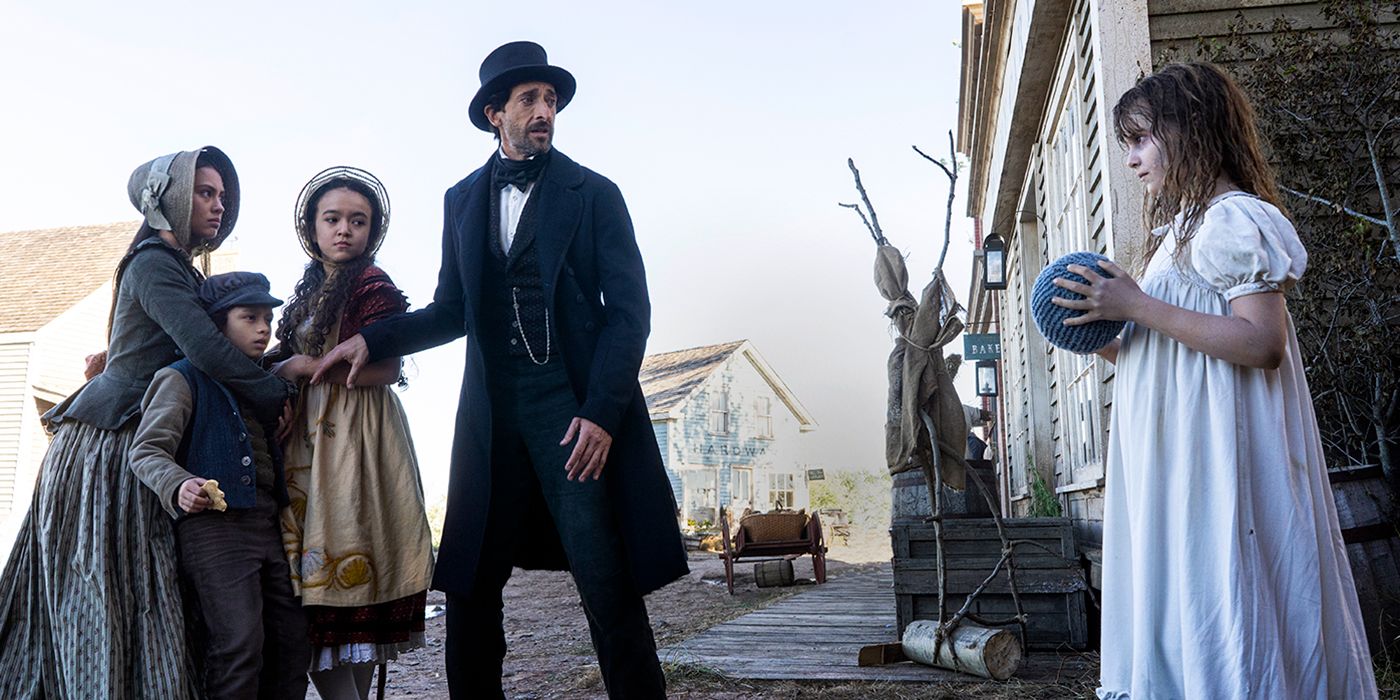
When the Boone family first visits Preacher's Corners in Chapelwaite's premiere, they become aware of a mysterious illness that seems to be sweeping through the area. Throughout the town, they notice signs either warning people who are ill away or marking homes and businesses as "quarantined." The Boones mainly encounter the illness through Susan Mallory, a sick young girl who accosts Tane Boone, asking if he "killed her rabbit." The illness is a new addition to the series that is not featured in the short story. However, with the COVID-19 pandemic currently still spreading throughout the world, the sickness is more timely, even if Chapelwaite's illness is supernatural in origin.
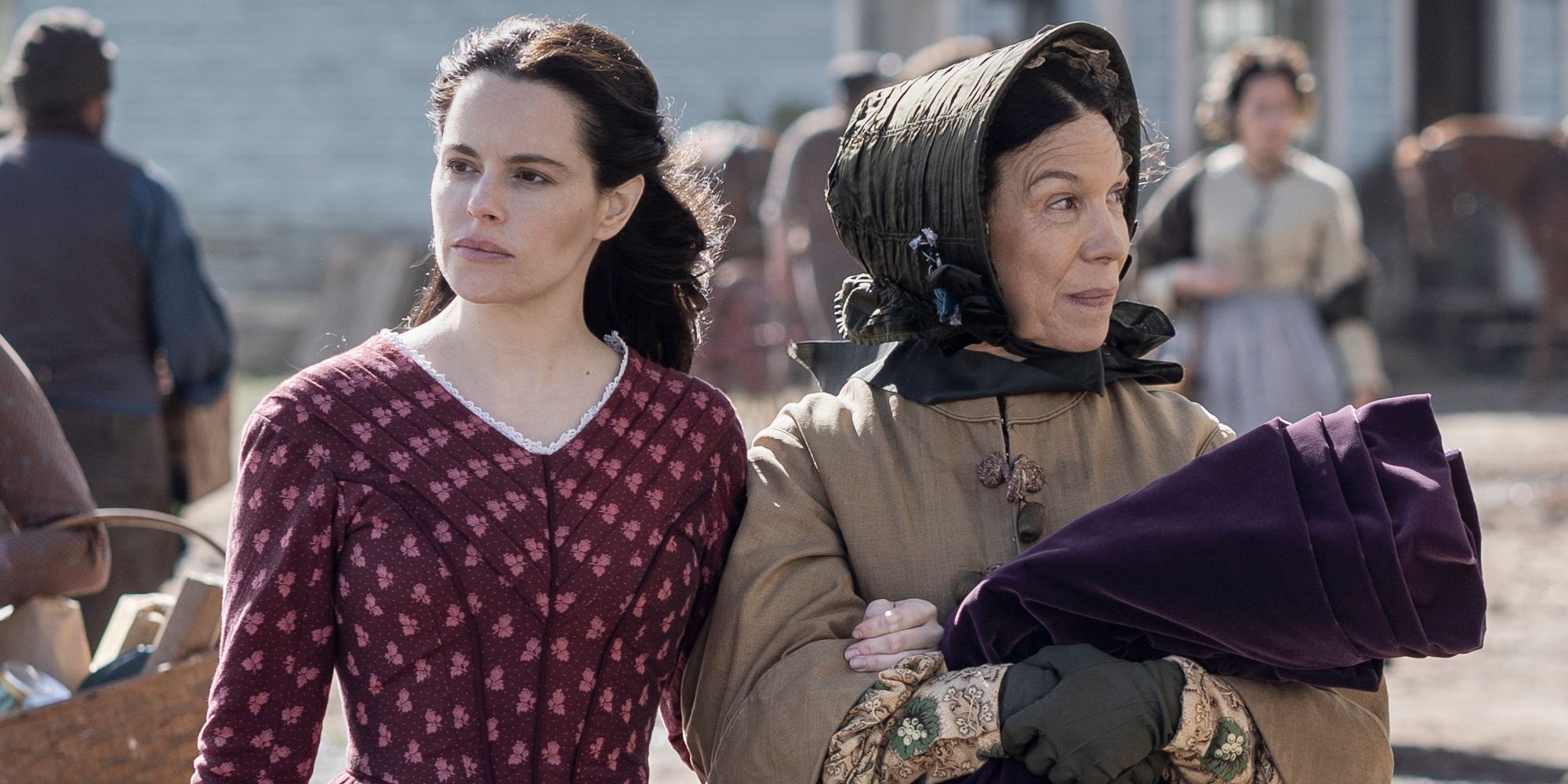
While Chapelwaite's first episode still mostly focuses on the Boone family, the other major changes strengthen the family's connections to Preacher's Corners, for better and for worse. "Jerusalem's Lot" was mainly told through Charles Boone's letters and Calvin McCann's journal, providing a limited view of the story, especially once the supernatural creatures at the heart of Chapelwaite and Jerusalem's Lot's horrors make themselves known.
In Chapelwaite, the narrative structure seems to take inspiration from Stephen King's Salem's Lot, first published in 1975. "Jerusalem's Lot" actually is a prequel to Salem's Lot. In Salem's Lot, while Ben Mears, an author, could be considered the main protagonist, the perspective shifts throughout the novel to other Salem's Lot's citizens, providing a more complete view of the horrors caused by Kurt Barlow's arrival. Chapelwaite's premiere already has shown the viewpoint to shift to other characters outside of the Boone family, like Rebecca and Edward Mallory. As the story continues, the Filardi brothers may use the citizens of Preacher's Corners to showcase the full extent of the damage caused by the supernatural and cosmic terrors currently hidden in Chapelwaite.
To see how Chapelwaite transformed Stephen King's short story, new episodes drop each Sunday at 10:00 p.m. ET/PT on EPIX.
0 Comments